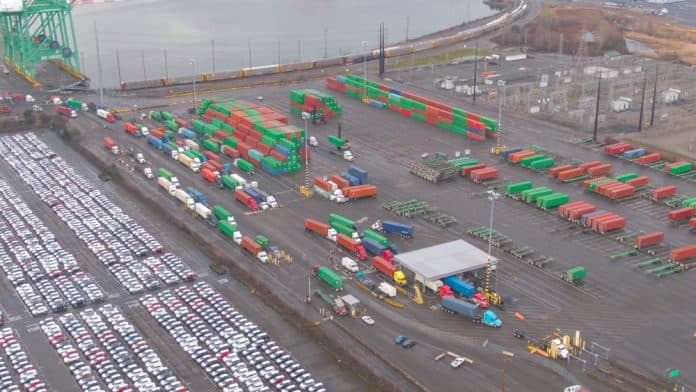A clean truck fee of $10 per TEU has been approved by the Los Angeles Harbor Commission on November 4th, followed by the Long Beach commission on November 8th.
Cargo owners will be responsible for this charge starting April 2022. The goal of this plan is to expedite the introduction of zero-emission vehicles in the port complex.
The Clean Truck Fund [CTF] rate is estimated to produce over $90 million, revenue that will be used to provide grants to truckers for emission-free-vehicles and create zero-emission programs. Containers that are currently carried by zero-emission trucks and laden containers using marine terminals via dock rails are exempt from the CTF, an order that was postponed at the onset of COVID-19 at the end of 2020.
The Southern California ports face a deadline to be fully compliant with the zero-emission standards by 2035. Battery electric trucks or plug-in are considered zero-emission.
A recent study conducted by Davies Transportation found that the Ports of Los Angeles and Long Beach could face a loss of about 34,000 TEUs due to cargo being diverted to other ports to avoid the clean truck fee. 20 million TEUs are expected to be handled by the Los Angeles-Long Beach port complex this year.
The cost of shipping a 40-foot container from Ningbo to Los Angeles has increased four-fold in the past two years going from less than $2,000 per FEU to over $8,000 per FEU as of last week. This increase overshadows the $10/TEU and $20/FEU fee as a whole in the all-in shipping cost in the eastbound Trans-Pacific region. Cargo diversions to other ports on the U.S. West Coast and U.S. East Coast have also been met with difficulty due to congestion and vessel backlogs expected in most major US gateways. This is projected to continue well into 2022.
It is estimated that the drayage industry in Southern California would have to invest around $1 billion to meet the 2035 zero-emission standards as their original 2006 Clean Air Action Plan and clean truck plan were updated in 2017. This original clean truck program emphasized the creation of fees on non-compliant trucks and gave way to the replacement of about 10,000 diesel trucks with cleaner diesel trucks that met the standards at the time. Each port contributed hundreds of millions of dollars to invest in clean-diesel vehicles.




